Local
Maryland Senate approves transgender rights bill
Measure passed by 32-15 vote margin
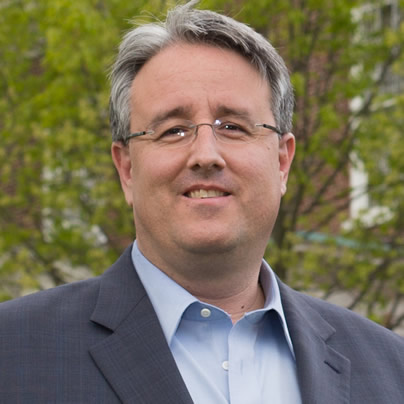
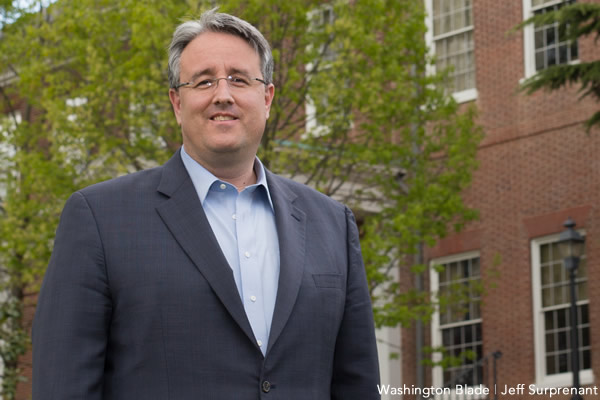
Maryland state. Sen. Rich Madaleno introduced Senate Bill 212 (Washington Blade file photo by Jeff Surprenant)
The measure passed by a 32-15 vote margin after senators debated on its third reading for less than 20 minutes.
Senate President Thomas V. Mike Miller (D-Prince George’s and Calvert Counties) voted for Senate Bill 212 – the Fairness for All Marylanders Act of 2014 – alongside state Sens. Joanne Benson (D-Prince George’s County), James Brochin (D-Baltimore County), Joan Carter Conway (D-Baltimore City), Ulysses Currie (D-Prince George’s County), Brian Feldman (D-Montgomery County), Bill Ferguson (D-Baltimore City), Jennie Forehand (D-Montgomery County), Brian Frosh (D-Montgomery County), Lisa Gladden (D-Baltimore City), Verna Jones-Rodwell (D-Baltimore City), Edward Kasemeyer (D-Baltimore and Howard Counties), Delores Kelly (D-Baltimore County), Nancy King (D-Montgomery County), Allan Kittleman (R-Howard County), Katherine Klausmeier (D-Baltimore County), Rich Madaleno (D-Montgomery County), Roger Manno (D-Montgomery County), Nathaniel McFadden (D-Baltimore City), Thomas Middleton (D-Charles County), Karen Montgomery (D-Montgomery County), C. Anthony Muse (D-Prince George’s County), Douglas Peters (D-Prince George’s County), Paul Pinsky (D-Prince George’s County), Catherine Pugh (D-Baltimore City), Victor Ramirez (D-Prince George’s County), Jamie Raskin (D-Montgomery County), James Robey (D-Howard County), James Rosapepe (D-Anne Arundel and Prince George’s Counties), Norman Stone (D-Baltimore County), Ronald Young (D-Frederick and Washington Counties) and Robert Zirkin (D-Baltimore County).
Kittleman, who is the only Republican who voted for the measure, said he hopes “people realize this is a fairness issue.”
“It is not our job to discriminate,” added Kelly before the vote. “The bill is carefully crafted. The definitions are clear”
State Sens. John Astle (D-Anne Arundel County), David Brinkley (R-Carroll and Frederick Counties), Richard Colburn (R-Caroline, Dorchester, Talbot and Wicomico Counties), James DeGrange, Sr., (D-Anne Arundel County), Roy Dyson (D-Calvert, Charles and St. Mary’s Counties), George Edwards (R-Alleghany, Garrett and Washington Counties), Joseph Getty (R-Baltimore and Carroll Counties), Barry Glassman (R-Harford County), Stephen Hershey, Jr. (R-Caroline, Cecil, Kent and Queen Anne’s Counties), Nancy Jacobs (R-Cecil and Harford Counties), J.B. Jennings (R-Baltimore and Harford Counties), James Mathias, Jr., (D-Somerset, Wicomico and Worcester Counties), Edward Reilly (R-Anne Arundel County), Christopher Shank (R-Washington County) and Bryan Simonaire (R-Anne Arundel County) voted against SB 212.
Simonaire before the vote questioned the measure’s definitions of public accommodations and gender identity. The Anne Arundel County Republican also sought additional religious protections in SB 212 that Raskin maintained already exist.
“The intent of this bill is discrimination,” said Simonaire. “There is an absence of religion.”
“Huge day for transgender rights in Maryland”
Madaleno, who introduced SB 212, applauded its passage.
“Today marks a historic milestone in the continued fight to advance equal rights for all Marylanders,” he said in a statement. “The Senate’s passage of the Fairness for All Marylanders Act sends a reaffirming message throughout our state that regardless of whom you are, prejudice and discrimination will no longer be tolerated or exempted from law. With these new anti-discrimination protections for transgender persons one step closer to full passage.”
“Today is a huge day for transgender rights in Maryland,” added Equality Maryland Executive Director Carrie Evans. “With their vote, 32 Senators stood up to say no one should be denied the opportunity to work for a living, secure housing or eat lunch at a restaurant just because of their gender identity.”
Gender Rights Maryland Executive Director Dana Beyer, who announced her candidacy against Madaleno in January, specifically applauded her opponent in a statement after senators approved the measure. She also praised Frosh, who chairs the Senate Judicial Proceedings Committee, former Equality Maryland Executive Director Dan Furmansky and “the trans community who came every year to Annapolis to lobby and tell their stories.”
“After eight years of struggle, and with the active support of Senate President Thomas V. Mike Miller, Jr., and the legislative magic of Sen. Jamie Raskin, a comprehensive gender identity anti-discrimination bill has passed in the Senate,” said Beyer.
Frosh described Madaleno as “the best leader for gender equality and LGBT rights in the country” as he discussed the measure’s passage with the Washington Blade after the vote.
“It was the forceful but quiet leadership of Jamie and Rich,” said Frosh. “The fact it came up and got almost no debate was remarkable. The fact it got 32 votes was astonishing.”
Human Rights Campaign State Legislative Director Sarah Warbelow, Vann Michael of Black Transmen, Inc., and Free State Legal Project Executive Director Aaron Merki are among those who also applauded SB 212’s passage.
“As a transgender woman, I know that this is one huge step forward for transgender people who only want to fully participate in public life, without fear of discrimination based on gender identity,” said Jenna Fischetti of the Maryland Coalition for Trans Equality. “Today the Maryland Senate said loud and clear that every Marylander deserves equal rights.”
SB 212 last month cleared a major hurdle when the Senate Judicial Proceedings Committee approved the measure by a 8-3 vote margin.
Baltimore City and Baltimore, Montgomery and Howard Counties currently include gender identity and expression in their non-discrimination laws. Hyattsville in December became the first jurisdiction in Prince George’s County to pass a trans-inclusive anti-discrimination ordinance.
Neighboring Delaware is among the 17 states along with D.C. and Puerto Rico that ban discrimination based on gender identity and expression. Lawmakers in Pennsylvania, New York and other states have introduced similar measures.
The Maryland House of Delegates Health and Government Operations Committee on Wednesday is scheduled to hold a hearing on a trans rights bill that state Del. Luke Clippinger (D-Baltimore City) introduced. The chamber approved a similar measure in 2011.
All three Democratic gubernatorial candidates – Lieutenant Gov. Anthony Brown, Attorney General Doug Gansler and state Del. Heather Mizeur (D-Montgomery County) – support SB 212.
“Today 32 Senators voted against gender discrimination and for what is just and fair,” Gansler told the Blade in a statement. “I congratulate all who worked so hard, led by Senator Madaleno, for the passage of this milestone legislation.”
“Today, the Senate took a huge step forward in our path to equality under the law for all Marylanders,” added Mizeur, who testified in support of SB 212 last month before the Senate Judicial Proceedings Committee. “No one in our state should face discrimination, period. Now let’s get it done in the House.”
Brown on Wednesday is expected to testify in support of Clippinger’s bill on behalf of Gov. Martin O’Malley’s administration.
“He sees this legislation as a critical step forward towards making sure that every Marylander no matter who they are, where they are, what their background is is treated fairly,” Brown’s spokesperson, Matt Verghese, told the Blade.
Maryland
Silver Spring holds annual Pride In The Plaza
‘Today means inclusion. It means to build resilience’

Silver Spring’s annual Pride in the Plaza event took place on Sunday to celebrate the LGBTQ community and emphasize inclusion and resilience.
“Today means inclusion. It means to build resilience, love,” Robyn Woods, program and outreach director for Live In Your Truth, which organized the event, said. “I mean, just being surrounded by the community and so many great entrepreneurs, business owners, and just being a part of this whole rainbow coalition that we call the LGBTQIA to be about.”
With the event being her first time organizing for Live In Your Truth, Woods said she felt emotional to see the support and love at the event.
“Some people (are) bringing out their children, their babies, their grandparents,” Woods said. “It’s a lot more allies here than anything else. That type of support to me means so much more than just support from my community; just outside support, inside support, so much support around it, so much love. Everyone’s smiling outside, helping each other.”
Attendees of the event were able to head over to the Family Fun Zone, an air-conditioned Pride Cool Down Lounge, or watch live drag performances in the main stage area.
Along with entertainment and a shaved-ice stand, rows of information tables stood along the plaza, including FreeState Justice, the Washington Spirit, Trans Maryland, Moco Pride Center, and the Heartwood Program, an organization that offers support, therapy, education, and resources to the LGBTQ community.
“I want people to know about our services, and I love what we have to offer,” Jessica Simon, psychotherapist for Heartwood Program’s Gender Wellness Clinic, said. “I (also) want to be part of a celebration with the community, and so it feels good to be here with other people who have something they want to give to the community.”
She added that within today’s political climate, to which she called an “antidote to shame,” it’s important to be celebrating Pride.
“There’s a lot of demonization of LGBTQI people,” Siena Iacuvazzi, facilitator for Maryland Trans Unity, said. “(Pride) is part of the healing process.”
Iacuvazzi said she was taught to be ashamed of who she was growing up, but being a part of a community helped her flourish in the future.
“I was taught how to hate myself. I was taught that I was an abomination to God,” she said. “But being a community is like understanding that there are people who have experienced the same thing, and they’re flourishing. They’re flourishing because they’re willing to stand up for themselves as human beings and discover themselves and understand what’s true for themselves.”
She added that Pride allows for a mutual understanding to take place.
“It’s more of a sense of belonging … and just taking that home and understanding you’re not alone,” Iacuvazzi said. “We’re each taking our own journey — we’re not putting that on each other. It’s just walking away with a sense of belonging and humanity.”
Similar to Iacuvazzi, Woods said she hopes attendees’ biggest takeaways would be family, fun, resilience, and pride.
“Being proud of yourself, being happy for who you are, and representation and how much it matters,” she continued. “And I think all these young people that are walking around here get to see versions of themselves, but older. They get to see so many different lesbian, gay, bisexual, pansexual people that are successful, that are showing love, that care, and it’s not how we’re portrayed in the media. It’s lovely to see it out here. (It’s) like we’re one big old, happy family.”
Virginia
Spanberger touts equality, reproductive rights in Arlington
Democratic Va. gubernatorial nominee made campaign stop at Freddie’s Beach Bar
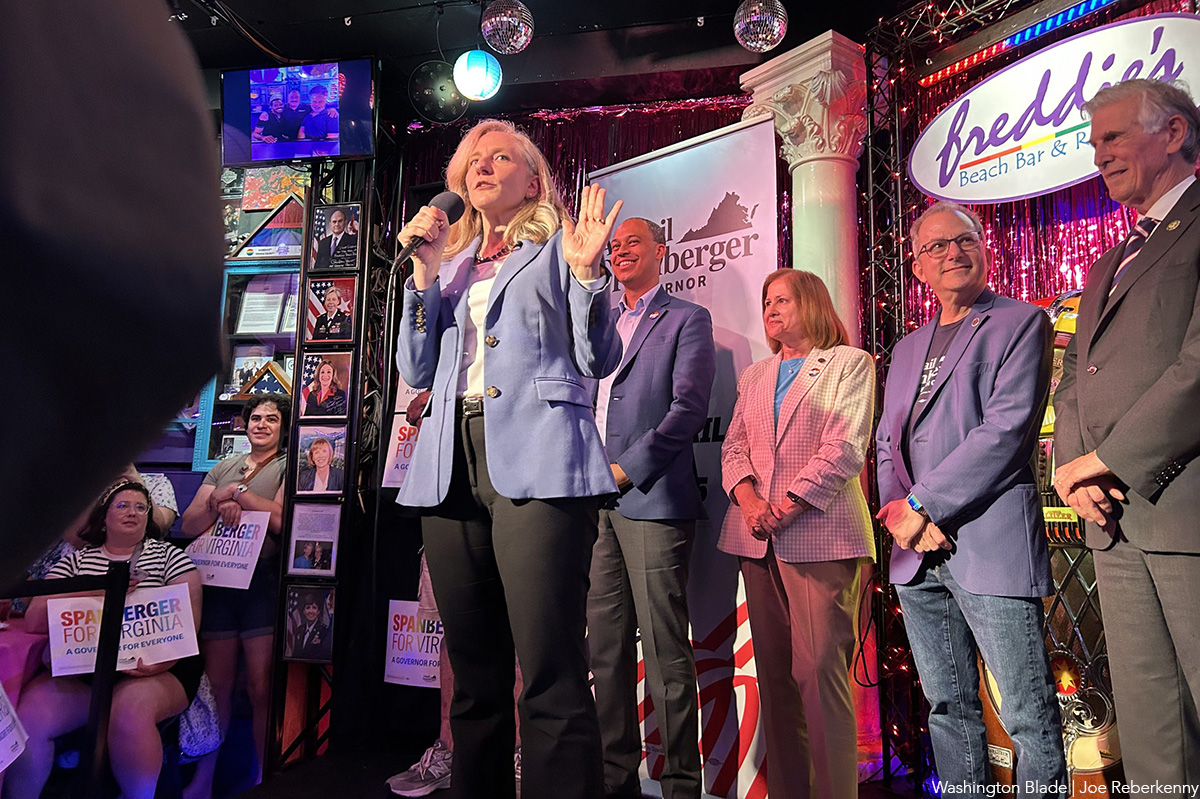
With the general election heating up and LGBTQ rights under increasing threat nationwide, Virginia gubernatorial candidate Abigail Spanberger brought her “Span Virginia Bus Tour” to Arlington’s Freddie’s Beach Bar for a campaign stop filled with cheers, policy pledges, and community spirit.
Spanberger, who served three terms in the U.S. House of Representatives from 2019 through early 2025 for Virginia’s 7th Congressional District, also served as a federal law enforcement officer specializing in narcotics and money laundering cases, and as a CIA case officer working on counterterrorism and nuclear counterproliferation.
Spanberger is running against Republican nominee Winsome Earle-Sears, the current lieutenant governor of Virginia, who said she was “morally opposed” to a bill protecting marriage equality in the commonwealth.
She was joined by other Democratic candidates and supporters: lieutenant gubernatorial candidate Ghazala Hashmi, attorney general candidate Jay Jones, Virginia state Sen. Adam Ebbin (D-Alexandria), and Congressman Don Beyer.
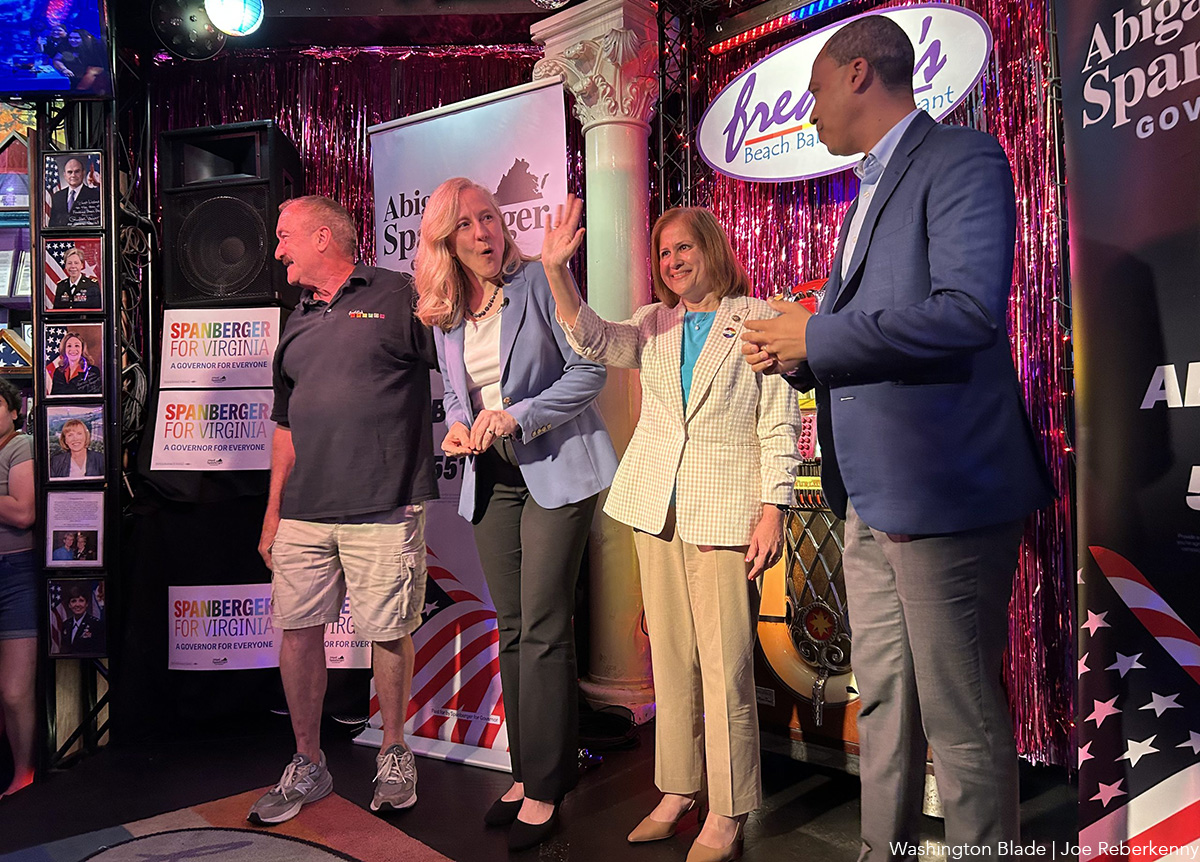
Freddie’s was packed wall-to-wall with supporters, many of whom wore “Spanberger for Virginia” shirts in the progressive Pride flag colors. In her speech, she made it clear that LGBTQ Virginians’ rights are on the ballot this year.
“I’m so excited to be here, and I am so grateful to the entire staff of Freddy’s for letting us overtake this incredible venue that is not just an awesome place to come together in community, but is a symbol to so many people of joy, of happiness, of community and of celebrating our friends and our neighbors,” Spanberger told the packed restaurant. “It is exciting to be here, and particularly during this Pride month, and particularly as we reflect on the 10-year anniversary of Obergefell and the reality that we still have so much work to do.”
“The reality is there are so many people who still would be inclined to take us backwards,” she said. “In this moment when we see attacks on people’s rights, on people’s humanity, on Virginia, on our economy, on research, on public education, on food security, on health care, on Virginians, on their jobs, on public service and on people — it can get heavy.”
“What it does for me is it makes me want to double down, because once upon a time, when I was talking to my mother about some horror show or sequence of activities coming out of a particular administration, she did not really have the patience to listen to me and said ‘Abigail, let your rage fuel you’ — and the conversation was over. And so I reflect on that, because, in fact, every day there is so much fuel to be had in this world and in this moment.”
One of the points Spanberger continued to emphasize was the importance of steadfast state government officials following the election of President Donald Trump, which has led to rollbacks of LGBTQ and bodily autonomy rights as a result of the conservative-majority U.S. Supreme Court.
“What the past few years have shown us is that a Supreme Court decision, no matter how many years we have celebrated its existence, does not protect us in the long term. And so as governor, I will work to make sure that every protection we can put in place for the dignity, the value, and the equal rights of all Virginians is a priority.”
During her speech, Spanberger highlighted several of the key values driving her campaign — protecting reproductive freedom and human rights, lowering healthcare costs, safeguarding Virginia’s environment, and ensuring that public education is affordable, accessible, and rooted in truth, not politics.
Spanberger went as far as to say that she wants to amend the state’s constitution to remove Section 15-A. “The reality is that in Virginia, we still have a ban in our state constitution on marriage equality. It is of the utmost urgency that we move forward with our constitutional amendment.”
“We will work to ensure that that terrible constitutional amendment, that was put in years ago, is taken out and updated and ensuring that Virginia is reflective in our most essential documents of who we are as a commonwealth, which is an accepting place that celebrates the vibrancy of every single person and recognizes that all Virginians have a place, both in that constitution and in law,” she added.
Following the event, two supporters spoke to the Washington Blade about why they had come out to support Spanberger.
“I came out because I needed to show support for this ticket, because it has been a particularly rough week, but a long few years for our rights in this country, in this state, with this governor, and it’s — we need to flip it around, because queer people need protection,” said Samantha Perez, who lives in Ballston. “Trans people need protection. Trans kids need protection. And it’s not gonna happen with who’s in Richmond right now, and we just need to get it turned around.”
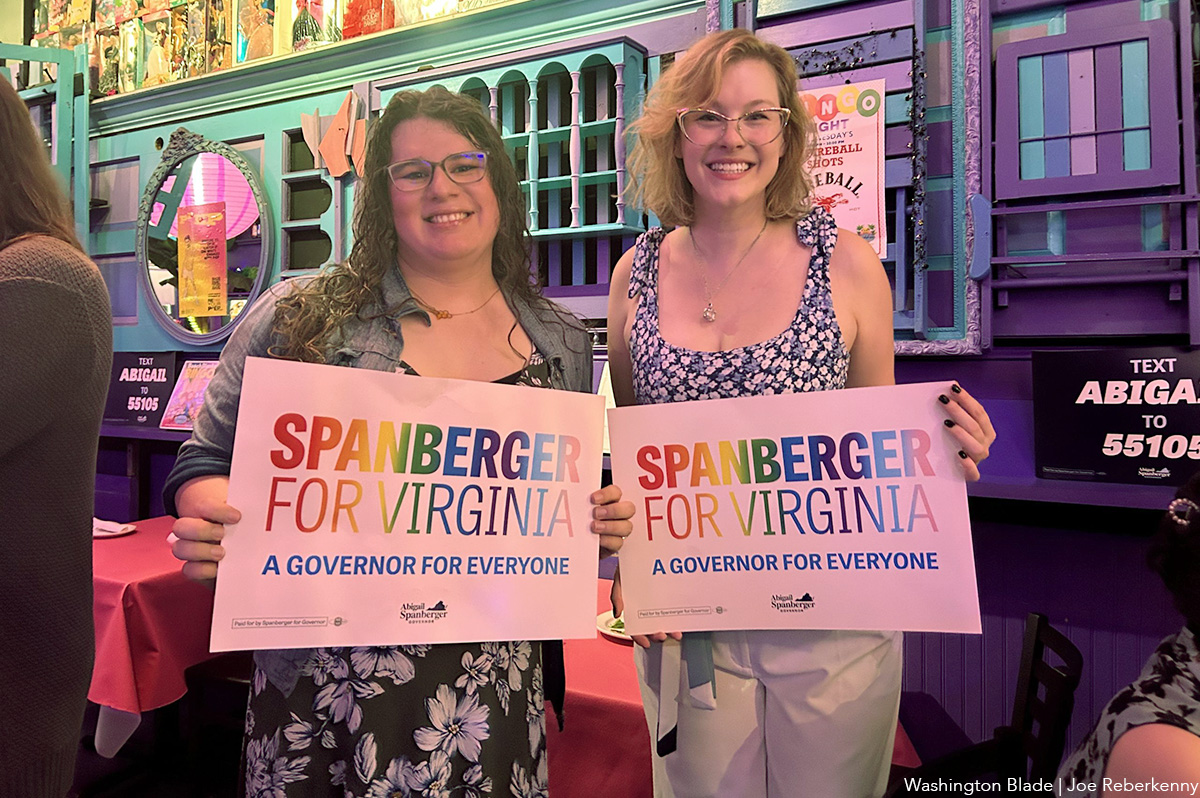
“The whole neighborhood’s here. All our friends are here,” said Annie Styles of Pentagon City. “It means the world to me to take care of each other. That’s what a good community does. That’s not what we’ve had with the Republicans here or across the nation for a really long time. It’s time to show that care. It’s time to make sure that good people are in a position to do good things.”
District of Columbia
Activists protest outside Hungarian Embassy in DC
Budapest Pride scheduled to take place Saturday, despite ban

More than two dozen activists gathered in front of the Hungarian Embassy in D.C. on Friday to protest the country’s ban on Budapest Pride and other LGBTQ-specific events.
Amnesty International USA Executive Director Paul O’Brien read a letter that Dávid Vig, executive director of Amnesty International Hungary, wrote.
“For 30 years Budapest Pride has been a celebration of hope, courage, and love,” said Vig in the letter that O’Brien read. “Each march through the streets of Budapest has been a powerful testament to the resilience of those who dare to demand equality, but a new law threatens to erase Pride and silence everyone who demands equal rights for LGBTI people.”
“The Hungarian government’s relentless campaign against LGBTI rights represents a worrying trend that can spread normalizing division and hatred,” added Vig. “Thank you for standing with us when we refuse to be intimidated.”
Council for Global Equality Chair Mark Bromley and two of his colleagues — Stephen Leonelli and Keifer Buckingham — also spoke. Health GAP Executive Director Asia Russell and Chloe Schwenke, a political appointee in the Obama-Biden administration who worked for the U.S. Agency for International Development, and Planned Parenthood staffers are among those who attended the protest.
(Washington Blade video by Michael K. Lavers)
Hungarian lawmakers in March passed a bill that bans Pride events and allow authorities to use facial recognition technology to identify those who participate in them. MPs in April amended the Hungarian constitution to ban public LGBTQ events.
Budapest Pride is scheduled to take place on Saturday, despite the ban. Hundreds of European lawmakers are expected to participate.
“Sending strength to the patriotic Hungarians marching tomorrow to advance human dignity and fundamental rights in a country they love,” said David Pressman, the gay former U.S. Ambassador to Hungary, on Friday on social media.
Sending strength to the patriotic Hungarians marching tomorrow to advance human dignity and fundamental rights in a country they love. Szabadság és szerelem. My past remarks on Budapest Pride: https://t.co/y1QhA9QouA
— David Pressman (@AmbPressman) June 27, 2025
-

 U.S. Supreme Court3 days ago
U.S. Supreme Court3 days agoSupreme Court upholds ACA rule that makes PrEP, other preventative care free
-

 U.S. Supreme Court3 days ago
U.S. Supreme Court3 days agoSupreme Court rules parents must have option to opt children out of LGBTQ-specific lessons
-

 India5 days ago
India5 days agoIndian court rules a transgender woman is a woman
-

 National4 days ago
National4 days agoEvan Wolfson on the 10-year legacy of marriage equality











